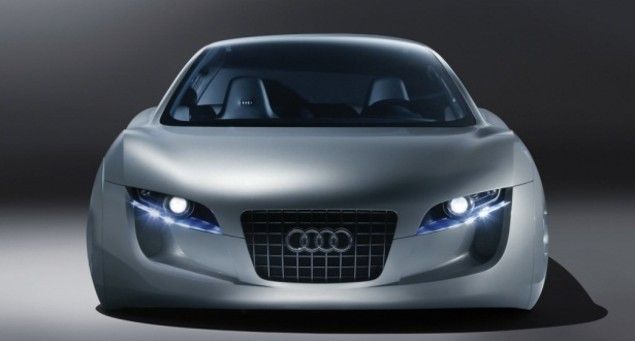Qualcomm has told Pocket-lint that it is working with car manufacturers to make the connected car a standard rather than something you only see on Sci-Fi movies, but that it is still a long way off.
"The product lifecycle in cars is really slow. For us, it is more than just providing connectivity to the car manufacturers so they can build a module that talks back via internet," Rob Chandhok, president of Qualcomm Internet Services and senior vice-president of QCT, explains before telling Pocket-lint the company is: "Just starting to engage with car manufacturers on high-level engagement systems."
Those high-level engagement systems include a range of different things beyond simply offering Wi-Fi on the go in the back of a taxi.
"At some point car makers have to ask what value they can add themselves," Chandhok says, before suggesting that many opted to support the iPod because that made sense over trying to build their own infrastructure.
"As a car manufacturer, do I want to be asking people to download Android apps for their car? Or do you just want to be able to use the car as part of the consumer electronic world that I live in? If we abstract it correctly that will be more powerful than asking every consumer device to run Android or Windows."
READ: How will we drive in 2015?
Chandhok's vision is that the car, along with our laptops, phones, and tablets, will simply slot into a connected world where eventually it doesn't matter what OS we are running.
It's a utopian vision, but one that companies like Amazon are already starting to achieve, Chandhok believes. Its Kindle reader app, for example, lets users read a book they've bought on a dedicated eBook reader as well as numerous dedicated apps and even the web, almost regardless of the device.
"I would love to be able to get in a car and leverage the best solution, sharing things back and forth. If I have a video on my phone and want to play it in the back for my kids, it shouldn't be complicated. I think the way to make it not complicated is to make it wireless because cables are a pain, and is has to be interoperable and cross platform, so don't just do it for one ecosystem, because there are at least three that are important."
Chandhok acknowledges, though, that the car has its own set of rules and pace sometimes.
"You need to recognise that some people's lifestyles change faster than others, so you want to define the basic services at a level that will persevere over time. I think we are at a point where we kind of realise what some of those things are, and that they are more than just profiles in Bluetooth."
For Chandhok, and his boss Paul Jacobs, it is all about the "internet of things". It is a concept that, in the future, everything will be connected and able to talk to each other. It is not about surfing the web from your washing machine.
READ: Jaguar XJL Ultimate pictures and hands-on
"For me it is about the proximal network. It's about wherever you are. The difference between that and GPS is that GPS is an absolute location - 'I am here'. Proximal is, wherever I am there are things around me but I am the original of the co-ordinate system - 'I am zero, zero'.
"So when I get in my car I am going to interact with the things that are around me and my car. There may be a relationship between the things in my car and my home; it may be that my mobile phone is the bridge that carries that relationship."
Chandhok says he is looking forward to having generic services which give him things such as notifications on the display of his car, but that aren't specific to a certain operating system, a sort of DLNA or Bluetooth if you like, but for all devices be it the car or the TV.
When will this happen? It's unlikely to be tomorrow, but Chandhok is hopeful that it might happen the day after that, with systems capable of the above in the home by 2014 and the car following shortly after.
That suggests that for the short term, if you want your phone to talk to your car, you're going to have to wait a little longer, or at least expect to plug it in first.

